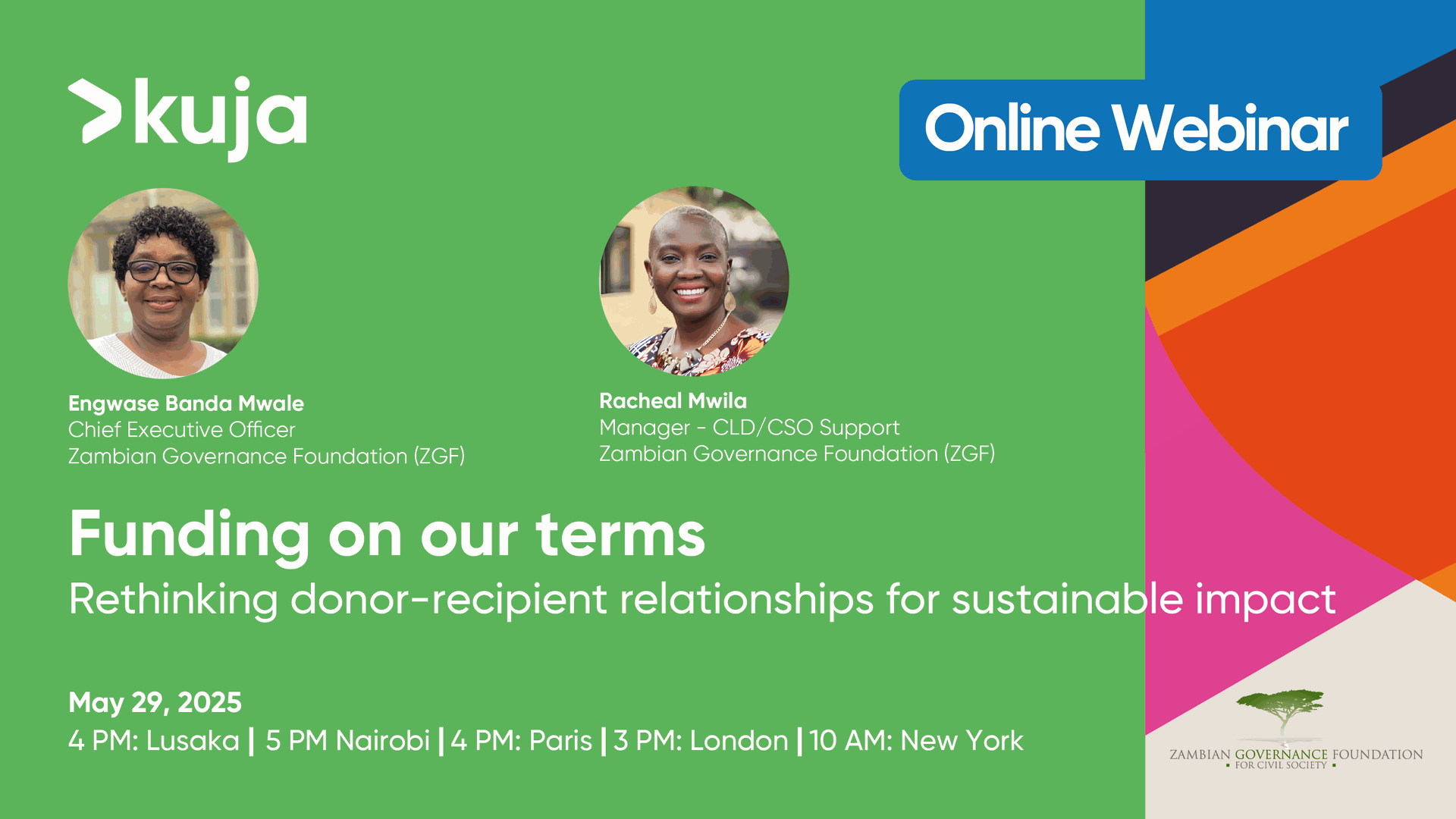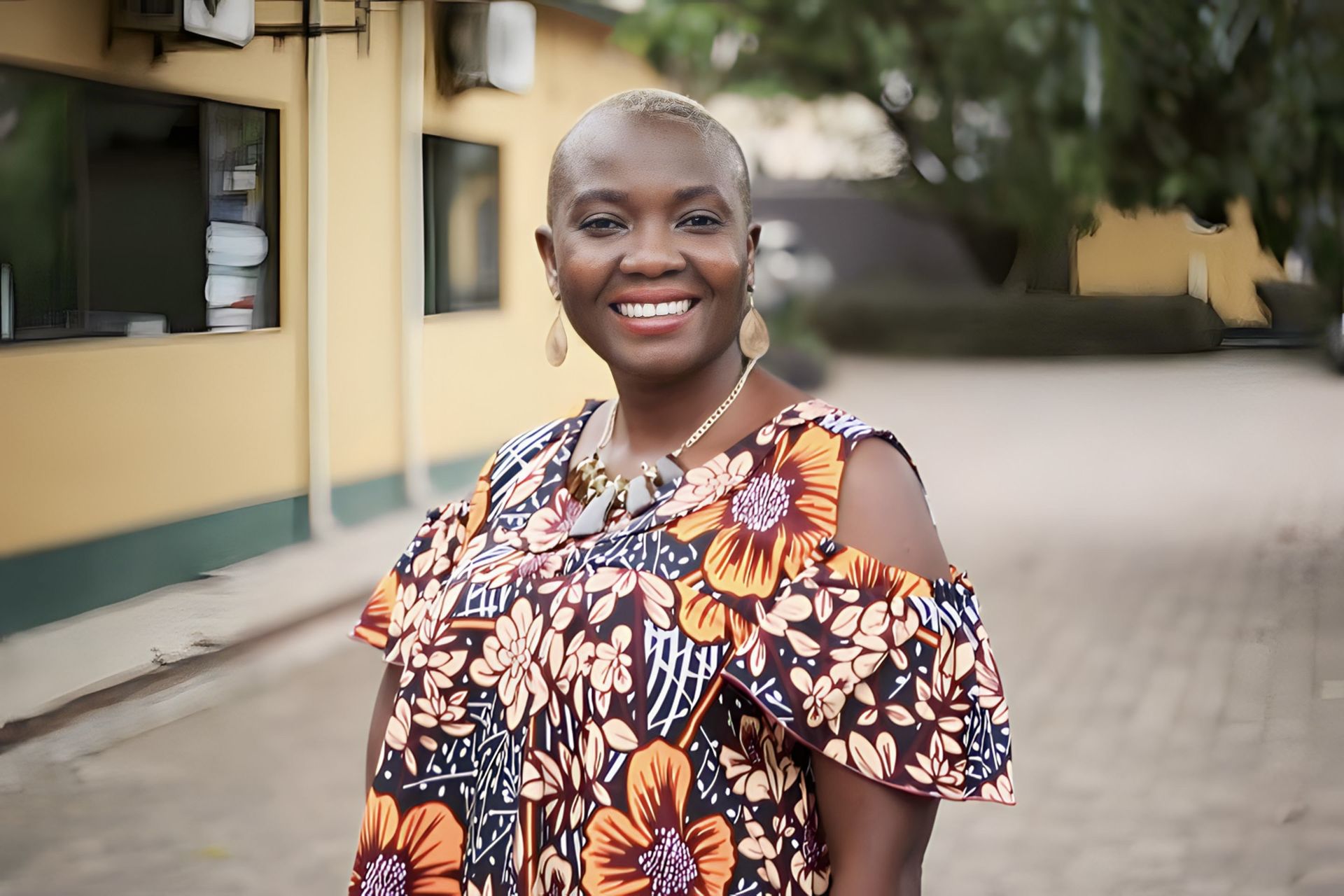Events
The events below are populated from several external sites that publicize grant events relevant to organizations like yours. We also have internal events from Kuja. Use the filters to explore the events that are interesting to you and apply to those that you want to attend!
- Adult Welfare
- Adult Welfare
- Animal Welfare
- Animal Cruelty
- Animal Experimentation
- Animal Rights
- Animal Welfare
- Arts & Culture
- Art
- Art Conservation
- Arts & Culture
- Culture
- Curating
- Documentary Making
- Film
- Galleries
- Games
- History
- Humanities
- Libraries
- Literature
- Museum
- Music
- Performing arts
- Podcasting
- Poetry
- Public arts
- Storytelling
- Visual arts
- Children & Youth
- Child Abuse
- Child Development
- Child Neglect
- Child Nutrition
- Child Participation
- Child Protection
- Child Rights
- Child Soldiers
- Child Survival
- Children & Youth
- Children with Disabilities
- Children’s Education
- Children’s Health
- Early Childhood Development and Education
- Early Marriages
- Orphans & Vulnerable Children
- Research
- School Health
- Sexual and Gender-Based Violence
- Youth
- Youth Economic Empowerment
- Youth Empowerment
- Youth Engagement
- Youth Leadership
- Youth Participation
- Youth Policies
- Youth Representation
- Youth and Climate Change
- Climate Change
- Agroforestry
- Biodiversity
- Biodiversity and Ecosystems
- Carbon Credits
- Chemical Risks
- Climate Adaptation
- Climate Change
- Climate Financing
- Climate Mitigation
- Climate Policy
- Climate Research
- Climate Resilience
- Conservation
- Decarbonization
- Desertification
- Droughts
- Early Warning Systems
- Eco-Friendly Production
- Eco-tourism
- Emerging Technologies
- Emission Reduction
- Environment
- Environmental Justice
- Environmental, Social and Governance
- Forest Management/ Conservation
- Fossil Fuel Management
- Grassroots Climate Response
- Habitat Restoration
- Hazardous Waste
- Invasive Species Control
- Just Energy Transition
- Land Degradation
- Land Restoration
- Marine conservation
- Mountain Ecosystems
- Mountains
- Natural Resource Management
- Ocean Conservation
- Rangelands
- Recycling
- Reforestation
- Renewable Energy
- Sea Conservation
- Sewage Management
- Solid Waste Management
- Sustainable Fashion
- Sustainable Tourism
- Sustainable Use
- Tree Planting
- Urban Green Infrastructure
- Urban Sustainability
- Waste Collection
- Waste Management
- Water Management
- Water Pollution
- Wildlife Conservation
- Communications and Advocacy
- Advocacy
- Communications
- Communications and Advocacy
- Media
- Storytelling
- Community Development
- Community Development
- Education
- Adult Literacy
- Alternative Education
- Digital Literacy
- Early Childhood Development and Education
- Education
- Education Policy
- Education Research
- Education Technologies
- Education Workforce
- Education in Emergencies
- Foundational Learning
- General Education
- Girls’ Education
- Higher Education
- Inclusive Education
- Information and Communication Technology
- Language Education
- Natural Sciences
- Post-Secondary Education
- Primary Education
- School Supplies
- Science, Technology, Engineering, and Mathematics
- Secondary Education
- Skills Development
- Social and Emotional Learning
- Social and Human Sciences
- Technical / Vocational Training
- Elderly
- Age Discrimination
- Elderly
- Elderly People
- Healthy Ageing
- Older People Rights
- Food and Agriculture
- Agricultural Machinery
- Agricultural Research
- Agriculture
- Agro Ecology
- Agroecology
- Farmer’s Rights
- Fishing
- Food Aid
- Food Feminism
- Food Policies
- Food Security
- Food Sovereignty
- Food Systems
- Food Systems Research
- Food Value Chains
- Food and Agriculture
- Genetically Modified Crops
- Irrigation Systems
- Markets and Trade
- Organic Farming
- School Feeding
- Seed Systems
- Soil Health Improvement
- Sustainable Agriculture
- Sustainable Farming
- Gender Equality
- Discriminatory Policies
- Domestic Workers
- Early Marriages
- Early Pregnancy
- Feminism
- Gender
- Gender Equality
- LGBTQIA+ Equality
- Leadership at Work
- Legal Protection
- Maternal and Child Healthcare
- Research
- Sex Work
- Sexual and Gender-Based Violence
- Sexual and Reproductive Health Rights
- Women & Girls
- Women and Girls in STEM
- Women with Disabilities
- Women’s Decision Making
- Women’s Empowerment
- Women’s Health
- Women’s Leadership
- Women’s Livelihoods
- Women’s Public Participation
- Women’s Representation
- Women’s Rights
- Governance
- Activism
- Democracy
- Diplomacy
- Elections
- Foreign Policy
- Governance
- National Security
- Political Movement
- Public Policy
- Healthcare
- Autoimmune Diseases
- Basic Care
- Chronic Illnesses
- Communicable Diseases
- Community Health
- Critical Illnesses
- Disability Healthcare
- Disease Surveillance
- Environmental Health
- Epidemiology
- Family Planning
- Food Safety
- HIV/AIDS
- Health Financing
- Health Promotion
- Healthcare
- Healthcare Technologies
- Hunger Alleviation
- Immunization
- Infectious Diseases
- Malaria
- Maternal Health
- Maternal and Child Health Care
- Maternal and Infant Health Care
- Menstruation
- Mental Health
- Neglected Tropical and Vector-Borne Diseases
- Newborn Health
- Non-Infectious Diseases
- Noncommunicable Diseases
- Nutrition
- Obesity
- Oral Health
- Pandemic
- Physical Health
- Primary Health
- Public Health
- Reproductive Health
- Research
- Road Safety
- Sexual Health
- Sexual and Reproductive Health and Rights
- Sexually Transmitted Infections (STIs)
- Sickle Cell Disease
- Soil-Transmitted Helminth Infections
- Substance Abuse
- Traditional Medicine
- Tuberculosis
- Vaccines
- Water, Sanitation and Hygiene
- Human Rights and Social Justice
- Child Protection and Welfare
- Civic Engagement
- Civil Society
- Disability Rights
- Disadvantaged Communities
- Diversity, Equity and Inclusion
- Economic Justice
- Ending Abuse
- Female Activists
- Gender-based Violence
- Human Rights
- Human Rights and Protection
- Human Rights and Social Justice
- Human Trafficking
- Indigenous Rights
- LGBTQ+ Rights
- Racial Justice
- Refugee Rights
- Research
- Sexual Exploitation and Abuse
- Social Action
- Social Justice
- Youth Rights
- Humanitarian Aid
- Asylum Seekers
- Camp Management
- Cash-Based Transfers
- Climate-Smart Disaster Risk Reduction
- Conflict Areas
- Detainees
- Disaster Management
- Disaster Relief
- Disaster Risk Preparedness and Response
- Disaster Risk Reduction and Recovery
- Displacement
- Early recovery
- Economic Recovery
- Emergency Response
- Essential Services
- Forced Displacement
- Healthcare in Emergencies
- Humanitarian Aid
- IDP Settlements
- International Humanitarian Law
- Medical Commodities
- Migration
- Natural Disasters Response
- Prisoners of War
- Protection
- Reconnecting Families
- Refugee Registration
- Relief Assistance
- Research
- Resettlement
- Resilience Building
- Rights of People in Conflict
- Shelter
- Torture Survivors
- Urban Refugees
- Water, Sanitation and Hygiene
- survivor-led community-based response (sclr)
- Leadership
- Leadership
- Leadership Building
- Leadership Mentorship
- Leadership Training
- Localization and Decolonizing Aid
- Decolonizing Aid
- Decolonizing Bilaterals
- Decolonizing INGOs
- Decolonizing Multilaterals
- Decolonizing Philanthropy
- Localization
- Localization and Decolonizing Aid
- Locally-Led Development
- Shifting Power
- Other
- Other
- Peace
- Community Security
- Conflict and Gender Sensitivity
- Inclusive Governance
- Peace
- Peace and Reconciliation
- Peacebuilding
- Peacekeeping
- Security
- Philanthropy , Giving and Development Aid
- Bilateral Aid
- Charity
- Community Philanthropy
- Development Aid
- Giving
- Individual Donations
- Multilateral Aid
- Philanthropy
- Philanthropy , Giving and Development Aid
- Religious Giving
- Social Entrepreneurship
- Social Impact
- Social Impact Investment
- Volunteering
- Poverty, Livelihoods & Economic Development
- Agribusiness
- Business Growth Programs
- Cash Programming
- Economic Development
- Economic Growth
- Economic and Social Development
- Economic and Social Inequalities
- Enterprise Development
- Entrepreneurship
- Extreme Poverty
- Financial Inclusion
- Income Generation Activities
- Income Security
- Inequity
- Informal Settlements
- Job Creation
- Job Skills Training
- Livelihood Development
- Livelihoods
- Loans
- Microfinance
- Poverty
- Poverty Alleviation
- Poverty, Livelihoods & Economic Development
- Private Sector Engagement
- Research
- Rural Development
- Safe Housing
- Savings
- Social Care
- Social and Economic Advancement
- Trade and Investment
- Underprivileged Communities
- Vulnerable People
- Women’s Entrepreneurship
- Workforce Development
- Public Safety
- Community Resilience
- Conflict Resolution
- Crime Prevention
- Homelessness
- Housing
- Infrastructure Development
- Legal Services
- Public Safety
- Religious Activity
- Church
- Church Outreach
- Church-Based
- Faith-Based Service Delivery
- Interfaith Cooperation
- Interfaith Dialogue
- Religious Activity
- Seva
- Waqf
- Zakat
- Renewable Energy
- Clean Cooking
- Clean Energy
- Electricity
- Emissions Reduction
- Energy Financing
- Energy Transition
- Geothermal Energy
- Green Energy
- Industry Decabornization
- Off-Grid Renewable Energy
- Public Financing
- Research
- Solar Energy
- Wind Energy
- Science, Information and Communication Technology
- Artificial Intelligence
- Biology
- Blockchain
- Digital Products
- Earth Sciences
- Engineering
- Free Internet
- Health Sciences
- Internet Access
- Internet Connectivity
- Internet of Things
- Safe Internet
- Science, Information and Communication Technology
- Science, Technology, Engineering, and Mathematics
- Sciences
- Software and IT
- Telecommunications
- Website Development
- Sports and Recreation
- Equal Play
- Sports and Recreation
- Sports for Development
- Sustainable Development
- Sustainability
- Sustainable Development
- Sustainable Improvements
- Water, Sanitation and Hygiene
- Adequate Sanitation
- Clean Water
- Development Water, Sanitation and Hygiene
- Emergency Water, Sanitation and Hygiene
- Proper Hygiene Practices
- Public Health Water, Sanitation and Hygiene
- Safe Drinking Water
- Safe Water
- Urban Water, Sanitation and Hygiene
- Water Access
- Water Management
- Water Resilience
- Water, Sanitation and Hygiene
RISE FOR PHOKA is a volunteer-powered, youth and community-led development organization in Malawi that focuses on tackling climate change and sustainable development issues and is committed to taking care of the most vulnerable members of their communities, such as children and the elderly. Their support comes from income generated locally by visiting volunteers ’contributions, individual donations, and community-driven economic development initiatives. As Bhavna, one of their supporters stated, they are doing development “the way our ancestors used to do it.”
Join us for a conversation with Kondwani Msyalie, RISE FOR PHOKA Executive Director and two of key supporters to explore this community-centered Global South model built on the strong belief that resources for what we do can come from within communities themselves.
Live translation to French and Spanish will be available
Date and Time : 26th June, 2025
- Kenya - 17h00
- Malawi - 16h00
- UK - 15h00
Speakers
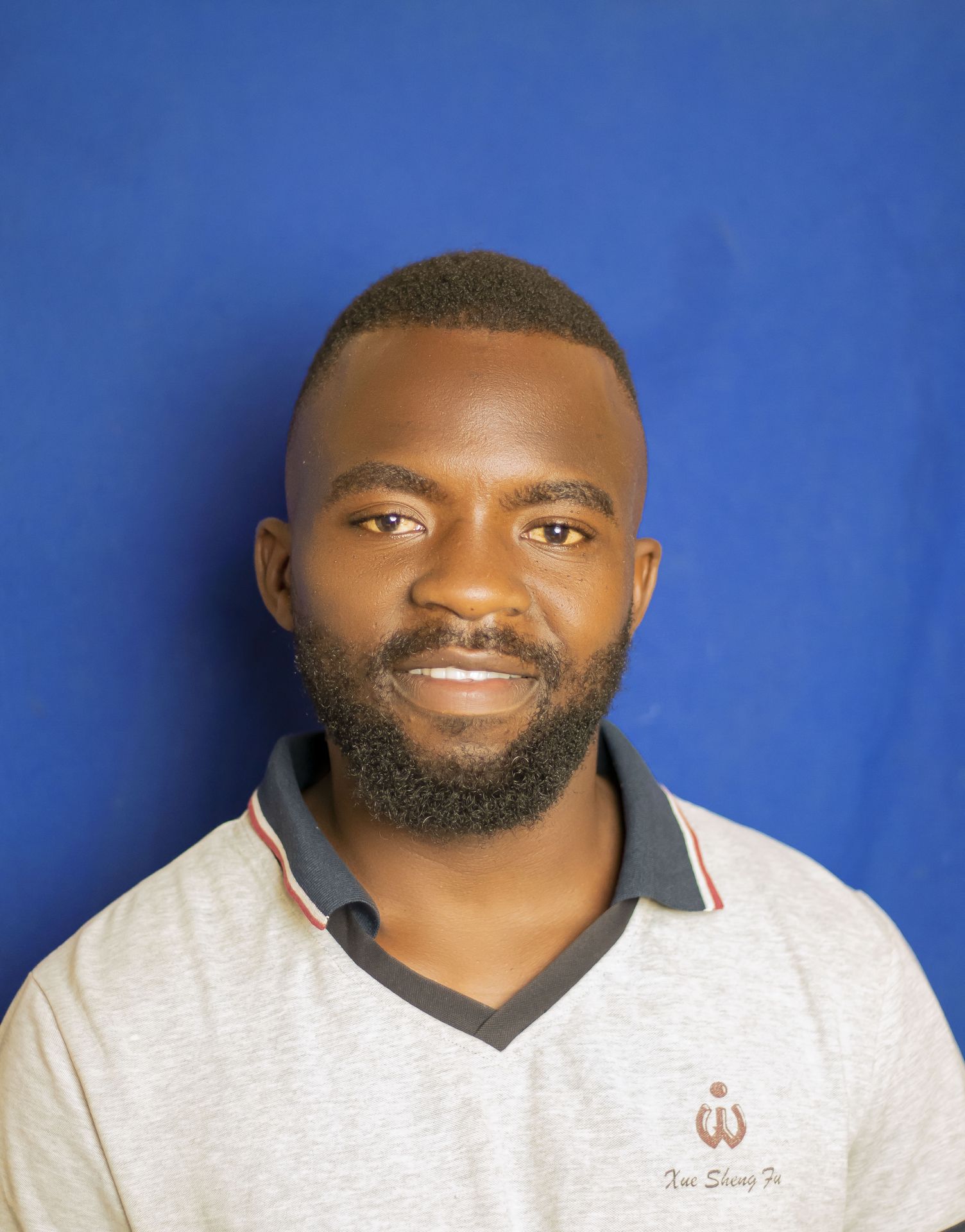
Kondwani Msyalie is the Founder and Executive Director of RISE FOR PHOKA, a grassroots Community Foundation in Livingstonia, Malawi, dedicated to sustainable community development. He holds a Bachelor’s degree in Environmental Management and a University Certificate of Education from the University of Livingstonia. Passionate about community empowerment, Kondwani leads projects focused on sustainable agriculture, education, and social support for vulnerable groups. Through his leadership, RISE FOR PHOKA has mobilized local resources and fostered partnerships to drive positive change.
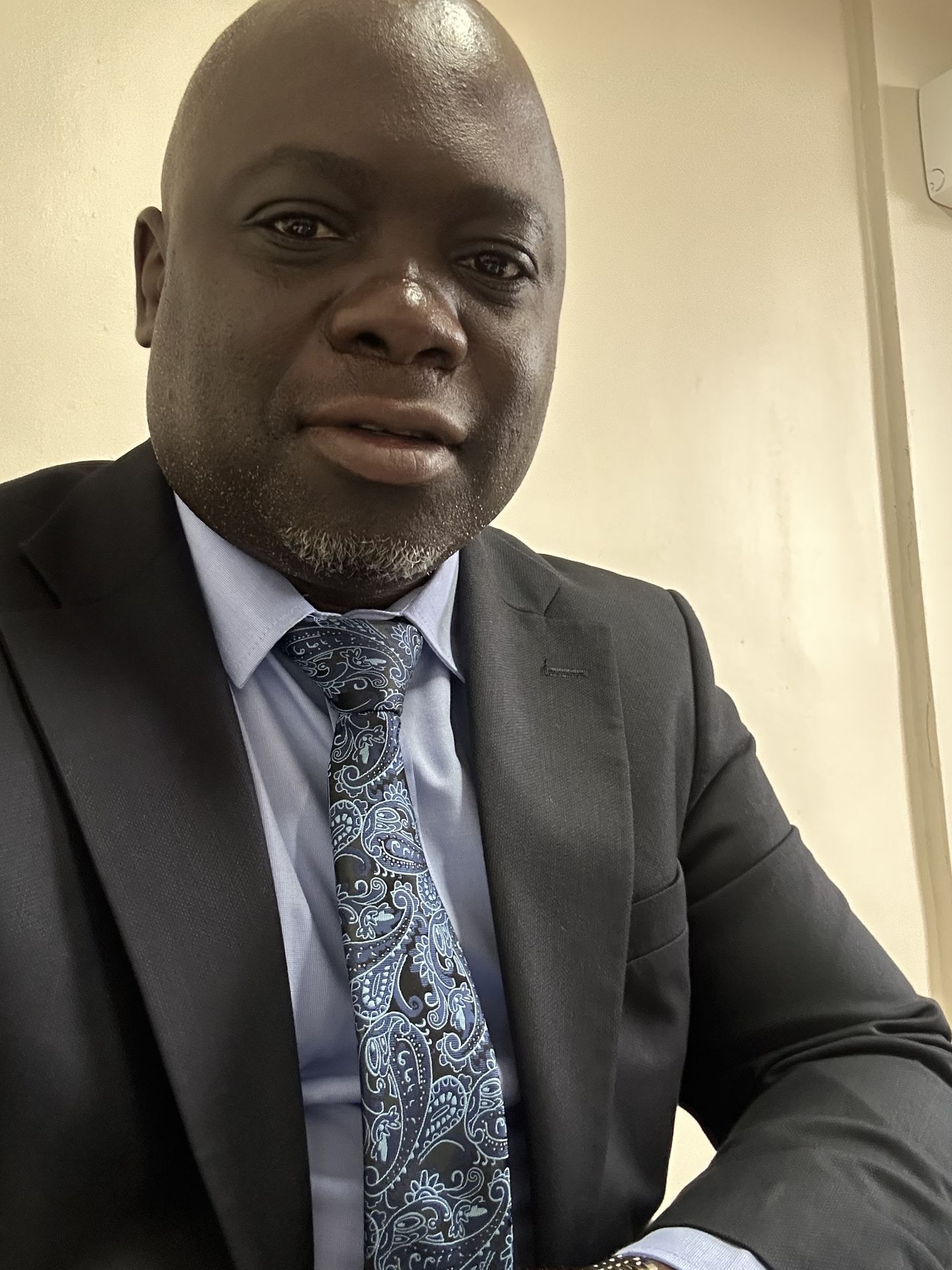
Frank Charles Kasonga is the Executive Director of Mudzi Connect, where he oversees the community development efforts of a local NGO that has improved the health, education, and economic opportunity and social justice for more than 600,000 Malawians to date. Frank is a published author with 20+ years of hands-on experience in project design and proposal development, organizational development, capacity building and training, grants administration, governance, environmental justice, people management, financial tracking, and monitoring and evaluation. Frank holds a Master’s Degree in Transformative Community Development from Mzuzu University, BSc in Social Science, and a Law certificate from Staff Development Institute. Frank is a leader by nature, a team-player, capacity builder, excellent writer, and a charismatic trainer. Frank is widely regarded as a leader in promoting locally-led development and a frequent speaker and panelist on the topic.
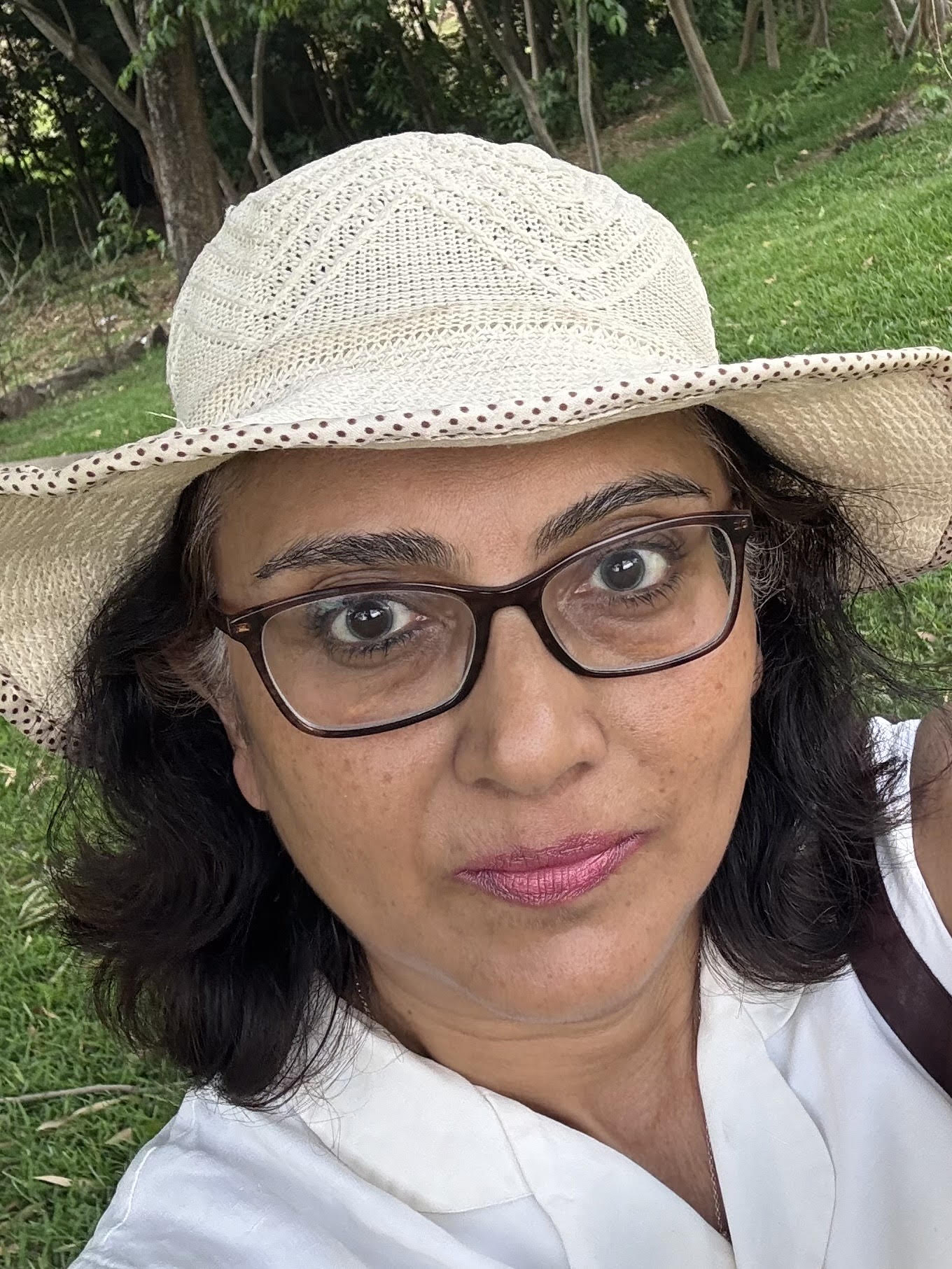
Bhavna Naik is a professionally qualified Finance Manager from the UK. She is employed in the charitable sector, and was born in Zambia, where her parents initially migrated to from India. In 2022, she was seconded to Malawi for three years as Head of Finance for a social enterprise.
Having witnessed an unhealthy dependency culture in Malawi, she collaborated with a Malawian founded charity- Rise for Phoka to progress the idea of sustainable communities by buying farmland with the aim to grow and sell the produce to generate income to fulfill the charitable objectives of the organization.
She is a passionate disrupter, believes in giving with grace and dignity, and embraces grass roots values and nature.
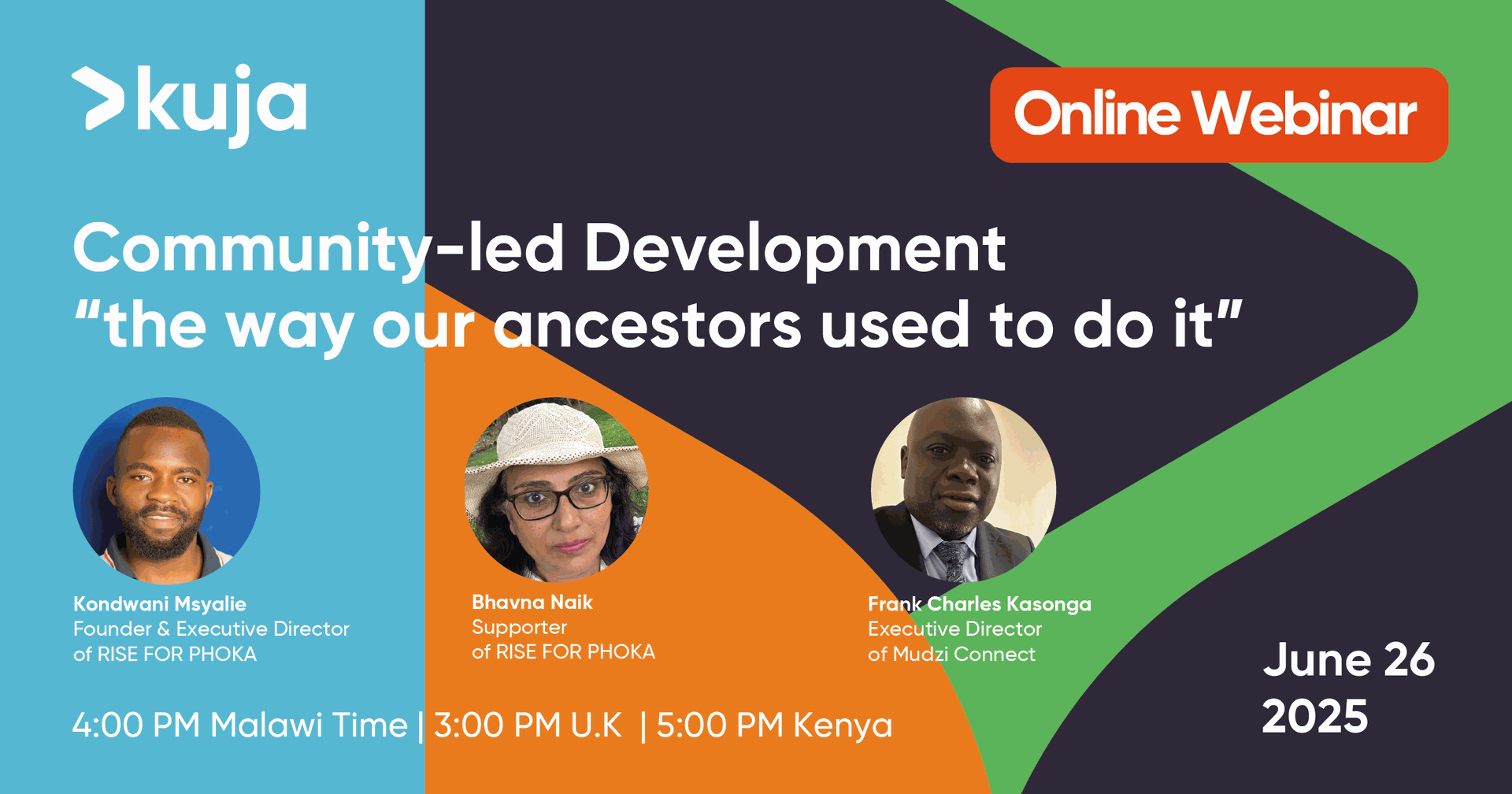
As international donors increasingly withdraw from global cooperation, grassroots organizations in the Global South are stepping up with bold, sustainable alternatives. One such organization is FEM Colombia, a community-driven initiative that’s transforming how Afro-Colombian and Indigenous communities reclaim land, assert their rights, and shape their own futures.
On the 3rd of June, 2025, Kuja-hosted a webinar where we sat down with Ana Maria Gonzalez, Co-Founder of FEM, for a rich conversation on FEM’s model of inclusive development and their innovative approach to funding diversification. The webinar was a testament to how localized knowledge and community ownership are not just viable paths forward — they are essential.
Centering Land, Identity, and Rights
FEM’s work is deeply rooted in Colombia’s ethnically diverse and environmentally rich Pacific and Caribbean regions, where systemic inequalities persist. These areas experience higher rates of poverty, limited access to healthcare and education, and historic land dispossession. In response, FEM has helped over 20,000 people secure collective land titles, enabling communities to protect their territories and preserve cultural identity — a principle they call "Land Forever."
But FEM’s vision goes far beyond legal victories. They engage communities through ethno-education, ethno-health, and leadership training, especially targeting women and youth. Their work fuses legal advocacy with participatory planning, making development both inclusive and deeply rooted in local realities.
Turning Obstacles into Opportunities
FEM’s journey hasn’t been easy. Many traditional funders deemed the organization “too local,” financially unviable, or geographically inconvenient (being based in Cartagena rather than the capital, Bogotá). And the private sector wasn’t a likely ally, often due to conflicting interests around land ownership.
Rather than shrinking under this pressure, FEM got creative.
They monetized their own value — calculating the worth of their volunteer contributions, community-owned infrastructure, and unique cultural knowledge.
They launched social businesses, attracting angel investors and creating jobs for local vendors.
They secured a U.S.-based fiscal sponsor, crowdfunded within their networks, and pursued South-South grant partnerships with funders who understood their context.
FEM also transformed its governance, building a tiered support network of honorary members, associates, and friends to sustain community fundraising and outreach.
Lessons for the Global South — and the World
Ana Maria emphasized the importance of lean operations, continuous learning, and mission-aligned entrepreneurship. At FEM, building economic alternatives through community-based enterprises isn’t just about money — it’s about dignity, resilience, and justice.
Watch the recording of the session here.
Speaker
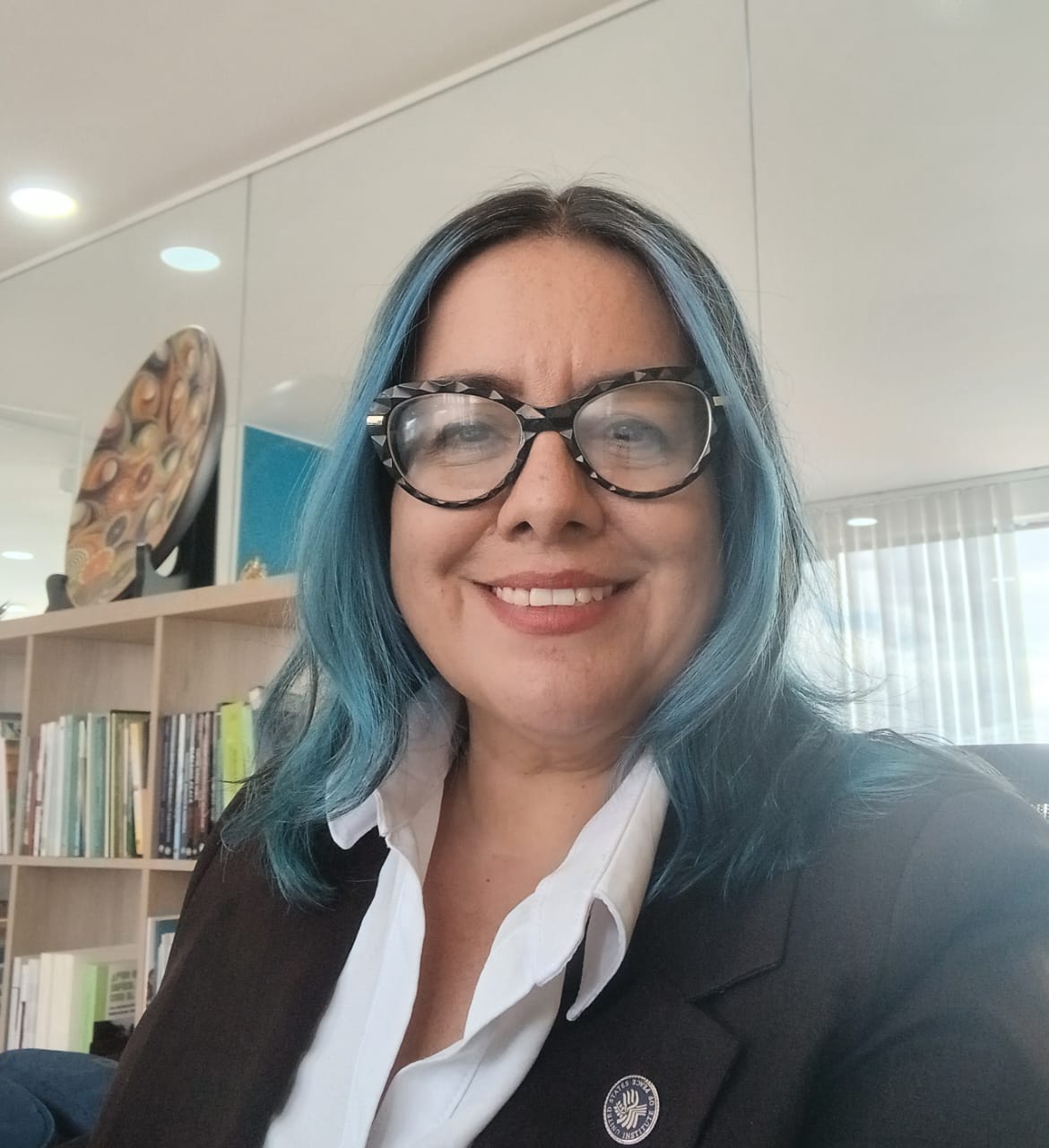
Ana Maria Gonzalez-Forero
Cofounder - FEM Colombia
Ana Maria is Colombian political scientist & mother of 2. Co-founded FEM (2007), securing land rights for 20,000 Afro-Colombians in 17 years via participatory models & social enterprises. Obama Scholar '18. Served Cartagena Gov't, tackling displacement & exploitation. Now with Voces Nuevas, advocating for Global South inclusion & a new world order.
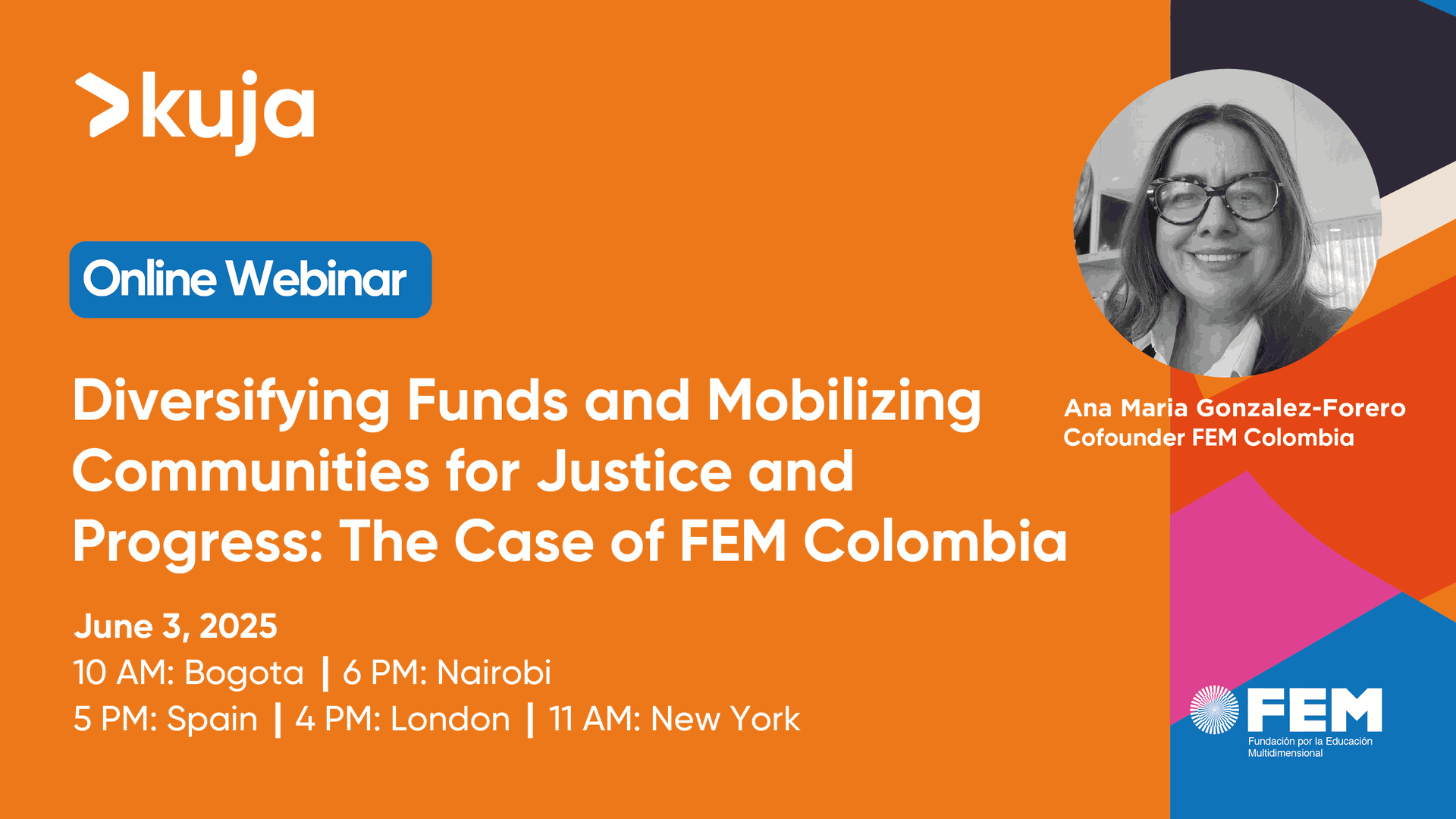
The recent webinar, Funding on Our Terms: Rethinking Donor-Recipient Relationships for Sustainable Impact, held on the 29th of May 2025, was led by the Zambian Governance Foundation (ZGF), and brought powerful insights into the urgent need to transform how development funding works.
In a global context where "shifting the power" is often discussed but rarely practiced meaningfully, ZGF’s CEO Engwase Banda Mwale and CLD/CSO Support Manager, Racheal Mwila made a compelling case for centering community leadership and autonomy. Their presentations challenged conventional donor-led funding models and shared how ZGF is actively dismantling these outdated structures.
What Needs to Change?
Racheal Mwila broke down the structural issues with traditional funding:
Short-term, donor-driven priorities that limit local innovation
Excessive administrative burdens on CSOs
Limited decision-making power for communities doing the actual work
Instead, ZGF is pioneering a new model grounded in community-led development and participatory grantmaking. Their three funds — the Catalyst Fund, Civil Society Strengthening Fund, and Community Resource Match Fund — emphasize trust, flexibility, and local ownership.
Shifting Power in Practice
Engwase Banda Mwale framed ZGF’s journey as a transformation in mindset, not just strategy. With over 400 CSO connections and growing alliances, ZGF asks bold questions like, What if communities made the call and funders responded?
Their "reverse call for proposals" flips the script, enabling communities to define priorities while ZGF acts as a responsive bridge-builder and trust creator. This model challenges the traditional role of intermediaries and invites donors to co-create rather than control.
Why This Matters
In the face of declining trust in institutions and growing inequality, the case for funding differently is not only moral — it's strategic. As Racheal emphasized, “We are not beneficiaries; we are philanthropists.” This powerful reframing invites communities to own their solutions, scale what works, and lead lasting change.
Watch the Recording
Missed the live session? You can watch the full event recording here.
Speakers:
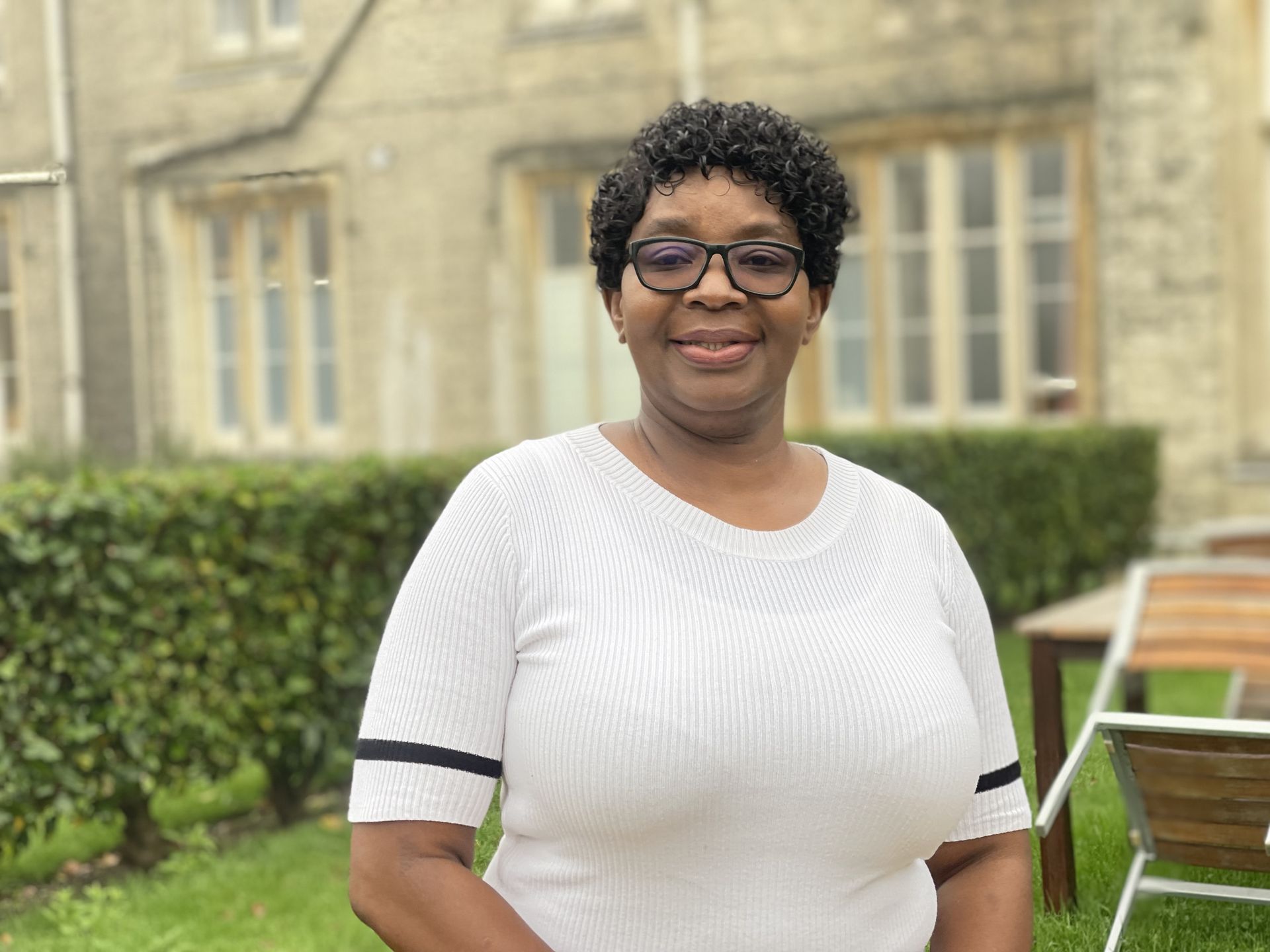
Engwase Banda Mwale, Chief Executive Officer of the Zambian Governance Foundation (ZGF), is a visionary leader with over 20 years of experience in senior management roles across the private and development sectors. A passionate advocate for women's empowerment, gender equality, good governance, and sustainable development, Engwase has a proven track record of driving transformative change and promoting inclusive growth. With her expertise in gender, leadership, and organizational development, she has been instrumental in shaping policies and programs that support marginalized communities and promote environmental sustainability.
Racheal Mwila is a seasoned development practitioner and manager of community-led development and civil society organizations at ZGF, with over a decade of experience driving climate action. Her expertise spans climate change advocacy, sustainable development, and shifting power dynamics to empower local communities. Racheal has a proven track record of mobilizing stakeholders, developing climate-resilient projects, and promoting environmental stewardship. Her passion lies in fostering inclusive, community-driven solutions to mitigate the impacts of climate change and ensure a sustainable future.
